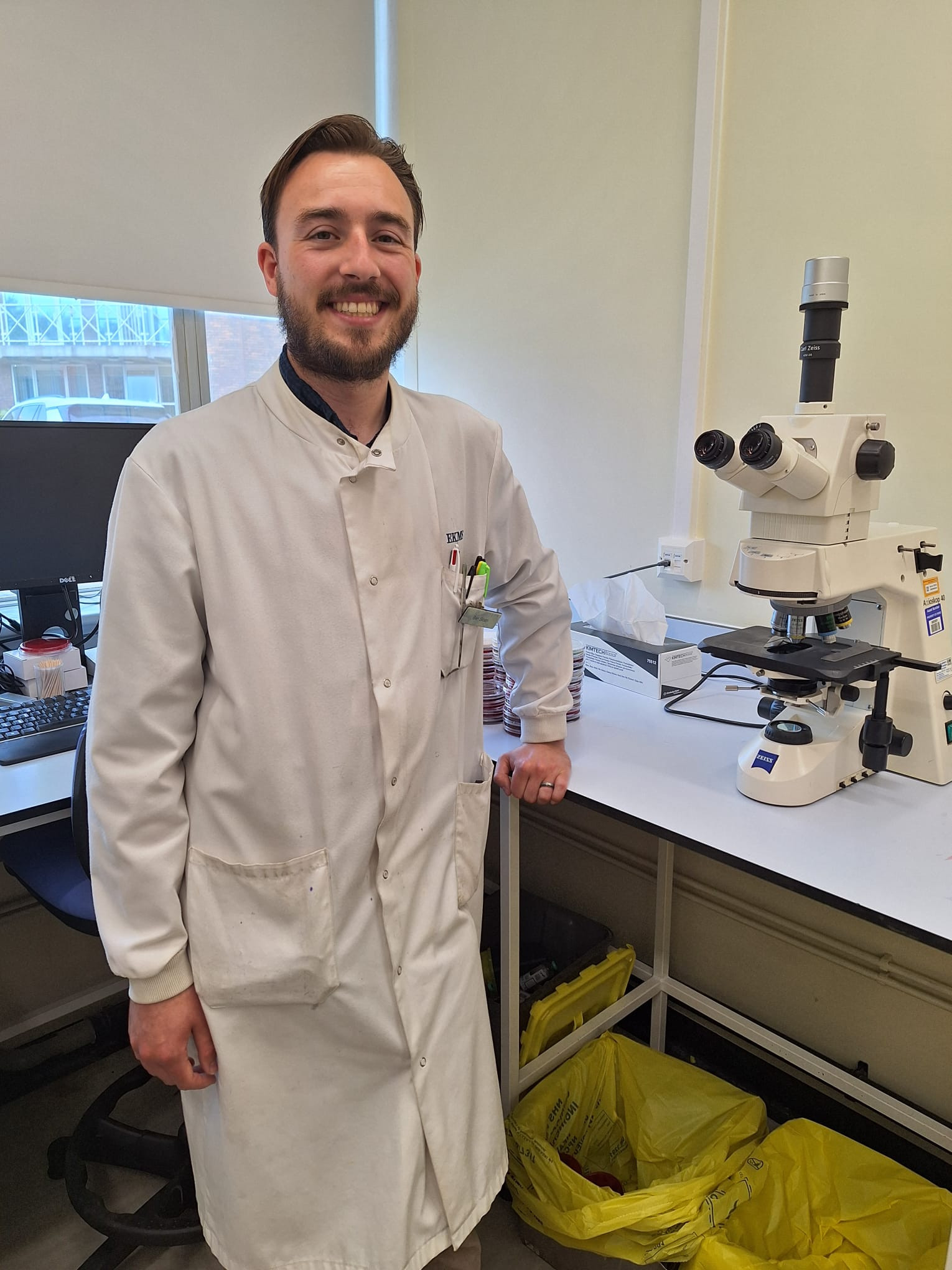
Biomedical Science Day - meet Ben Sloan
From the top of your head to the bottom of your feet, there isn’t a body part that biomedical scientists can’t test
The team analyse samples including hair, blood, urine and skin, as well as swabs from wounds, to help identify infections and provide the best care for our patients.
They can even test cultures against different treatment options, to ensure the most effective drug is used and to help tackle antimicrobial resistance.
For senior biomedical scientist Ben Sloan, working in our microbiology lab is a dream job.
He said: “I always wanted to be a scientist. I did a biomedical science degree; some people were using it as a stepping stone to something else but I just wanted to be a biomedical scientist.
“I like the fact that what we do directly helps patients. It feels like we are making a difference.
“I enjoy the trouble-shooting aspect of it; being able to look for an infection and identify it and then help find the best treatment.”
Ben and the team in microbiology help identify a range of infections, from MRSA and C-difficile to Covid and tuberculosis, with a special negative-pressure room for highly contagious respiratory diseases.
Ben said: “The pandemic really put the spotlight on us, and the pathology team in general, which was welcome as sometimes we can feel a bit hidden away.
“We never meet patients but we have a real impact on their care and it can be quite intense, with up to 600 urine samples in a day to analyse, plus many other samples.
“We work as fast as the organisms grow, so usually we can see what’s happening in 24 hours.”
For his Masters’ degree, Ben looked at the impact of automation and the use of artificial intelligence to read the sample plates.
He said: “I think that is the future. It will need a human for validation and checking but there is huge potential to automate some of the plate reading.
“When I first started it felt really difficult to identify the different diseases but now I can tell with a quick glance, and computers can also learn to identify them. That could really help as we expand our network and the numbers of samples we process.”
Ben joined the team seven years ago, working as an assistant healthcare scientist before gaining a trainee post. He has worked his way up from a band 2 to a band 7.
He said: “When I started I had no idea how the lab worked, and I am still learning new things every day.
“It’s a fascinating career and a chance to play a vital role in patient care.”